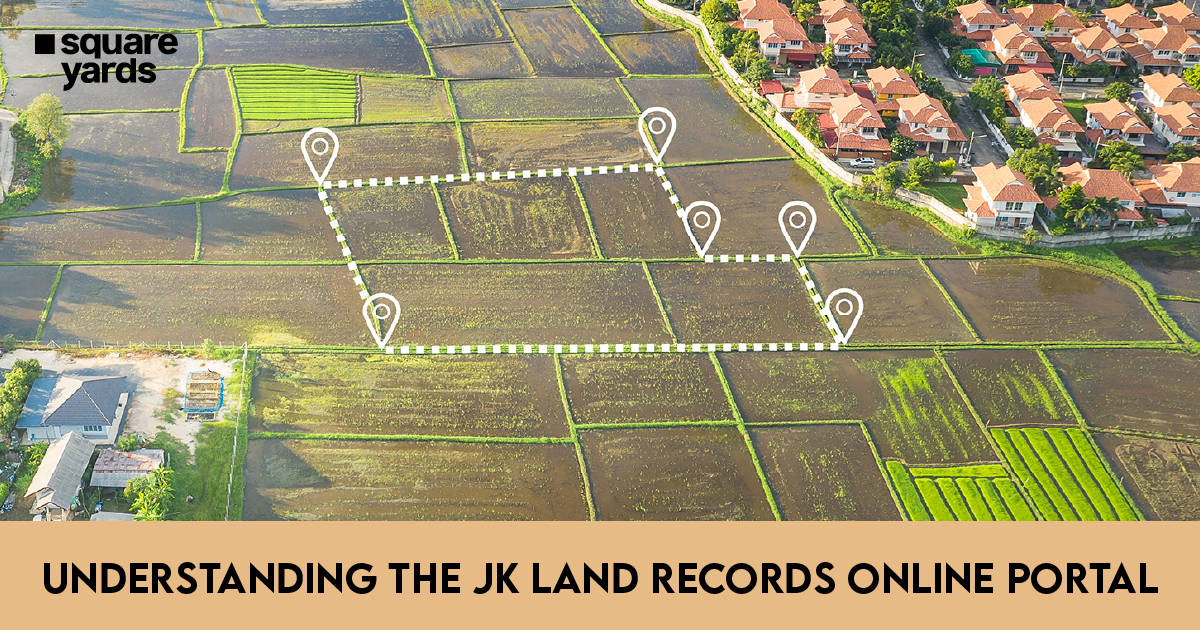The two most vital scales for temperature measurements are Celsius and Kelvin. A simple formula is used for converting the same temperature from Celcius to Kelvin or °C to K. The official temperature scale is Kelvin, although Celsius falls under the SI temperature scale category. Both the scales are used to measure temperature but zero point acts as the major difference between the two.
When converting from Celsius to Kelvin, the Kelvin value will be higher than the Celsius value. If you are new to temperature conversion and looking forward to the conversion process and Celsius to Kelvin formula, you have landed on the right blog. In this article, we will guide you to convert Celcius to Kelvin.
Table of contents
Celsius Definition
Anders Celsius invented the Celsius scale and it is represented as °C. The Celsius scale, often known as the centigrade scale, is used to measure temperature. It is denoted as °C and can relate to specific temperatures or illustrate a variation between two temperatures. The centigrade scale is further divided into 100 equal sections. The Celsius scale is taken into account to determine the boiling and freezing points of water at 100 and 0 °C, respectively.
Current Use of Celsius
The Celsius scale has become an alternative to replace the Fahrenheit scale in numerous countries around the globe since the late 20th century. Practically, by now all nations use the Celsius scale for temperature measurement. However, countries that have not adopted the metric system, don’t count on the centigrade scale including the United States. Although such countries, extensively use Celsius within the scientific community. In addition, Celsius is used in meteorological contexts
Kelvin Definition
Lord Kelvin invented the Kelvin scale and it is represented as K. In the International System of Units, Kelvin is considered the foundation unit to measure temperature. The triple point of water is represented by the percentage of 1/273.16 of the thermodynamic temperature, and this measurement scale is termed, Kelvin. It divides the interval amidst the freezing and boiling points of water into 100 divisions, making one Kelvin equivalent to one Celsius. The Kelvin scale is an absolute scale that is based on absolute zero, thus, the unit is rendered as K without the sign (°).
Current Use of Kelvin
The Kelvin has predominantly been used worldwide, specifically in the science and engineering domain. It is used in combination with the Celsius scale. The key reason for using both scales together is the fact that both the scales have the same magnitude. Unlike Celsius and Fahrenheit, kelvin is not taken into consideration when it comes to meteorological contexts.
Relationship between Celsius and Kelvin
The relationship between Celcius and Kelvin is easy to decode. There is no need to master the unit conversion to comprehend the logic behind the Celcius to Kelvin conversion. The only thing that you must remember is a parameter that needs to be added or subtracted to convert the temperature to the desired scale. This parameter is 273.15.
You can easily convert Kelvin to Celsius by subtracting 273.15 from the temperature in Kelvin. Whereas, to convert Celsius to Kelvin you need to add 273.15 to the temperature in Celsius. This is how the Kelvin and Celsius scales are interrelated.
This relation can be represented through the following formula:
K = C + 273.15 or, C = K – 273.15
Where C and K are magnitudes of a given temperature in Celsius and Kelvin.
Now when you are familiar with the relationship between Celcius and Kelvin, you can easily understand the °C to K conversion process.
How to Convert Celsius to Kelvin?
You can convert temperature from Celcius to Kelvin either through the conversion formula or through our Celsius to Kelvin converter. To compute values through teh converter you just need to enter the value in degrees celsius and the converted value will be shown on the screen in split seconds.
However, it is not possible to have access to the degree Celsius to Kelvin converted around teh clock, thus being familiar with the formula becomes equally important. The Celsius to Kelvin formula is
T(K) = T(°C) + 273.15
Celsius to Kelvin Formula
You can use the Celsius to Kelvin formula for changing the temperature unit from C to K. However, there is no rocket science about this formula and it is quite easy to decode. All you have to do is, add the number 273.15 to the Celsius temperature.
In other words, we can say, the temperature (T) in Kelvin is equivalent to the temperature (T) in degrees Celsius plus 273.15.
So, the C to K formula is:
T (K) = T (°C) + 273.15
Where T(°C) denotes the temperature in Celsius and T (K) denotes the temperature in Kelvin.
Common Conversions from Celsius to Kelvin
For better understanding, let us consider a few examples of Celsius to Kelvin conversions.
Convert 1 Celsius to Kelvin
To convert 1 degrees Celsius to Kelvin, enter the temperature in Celsius in the conversion formula.
T (K) = 1 + 273.15
Which is equal to 274.15 K.
Convert 20 Celsius to Kelvin
To convert 20 degrees Celsius to Kelvin, enter the temperature in Celsius in the conversion formula.
T (K) = 20 + 273.15
Which is equal to 293.15 K.
Convert 25 Celsius to Kelvin
To convert 25 degrees Celsius to Kelvin, enter the temperature in Celsius in the conversion formula.
T (K) =25 + 273.15
Which is equal to 298.15 K.
Convert 27 Celsius to Kelvin
To convert 27 degrees Celsius to Kelvin, enter the temperature in Celsius in the conversion formula.
T (K) = 27 + 273.15
Which is equal to 300.15 K.
Convert 37 Celsius to Kelvin
To convert 37 degrees Celsius to Kelvin, enter the temperature in Celsius in the conversion formula.
T (K) = 37 + 273.15
Which is equal to 310.15 K.
Convert 100 Celsius to Kelvin
To convert 100 degrees Celsius to Kelvin, enter the temperature in Celsius in the conversion formula.
T (K) = 100 + 273.15
Which is equal to 373.15 K.
Other Conversion Formulas
Here’s the list of other temperature conversion formulas which will allow you to convert temperature from one unit to another with utmost use:
- Celsius to Kelvin, T (K) = C + 273.15
- Celsius to Fahrenheit, T (F) = (9/5) C + 32
- Fahrenheit to Celsius, T (C) = (5/9)(F-32)
- Fahrenheit to Kelvin, T (K)= (5/9)(F+459.67)
- Fahrenheit to Rankin, T (R) = F + 459.67
- Rankin to Kelvin, T (K) = (5/9)R
Don’t miss It!
| Kelvin to Celsius | Kelvin to Celsius Conversion: Conversion Table, Examples |
| Celsius to Fahrenheit | How to Convert Celsius to Fahrenheit: Formula & Examples |
| Cubic Meter to Liter | How to Convert Cubic Meter to Liter: Formula & Examples |
| Decimal to Sq Feet | How to Convert Decimal to Square Feet: Formula & Examples |
| Millimeter to Inch | How to Convert Millimeter to Inch: Formula & Examples |
| Milligrams to Grams | How to Convert Milligramsto Grams: Formula & Examples |
| Liter to Gallon | How to Convert Liter to Gallon: Formula & Examples |
| Sq CM to Sq M | How to Convert Sq CM to Sq M: Formula & Examples |
Celsius to Kelvin Conversion Chart
To get Celsius to Kelvin converted values in split seconds refer to the following conversion chart.
| Celsius (°C) | Kelvin (K) | Celsius to Kelvin |
| 1 °C | 274.15 K | 1 °C is equal to 274.15 Kelvin |
| 2 °C | 275.15 K | 2 °C is equal to 275.15 Kelvin |
| 3 °C | 276.15 K | 3 °C is equal to 276.15 Kelvin |
| 4 °C | 277.15 K | 4 °C is equal to 277.15 Kelvin |
| 5 °C | 278.15 K | 5 °C is equal to 278.15 Kelvin |
| 6 °C | 279.15 K | 6 °C is equal to 279.15 Kelvin |
| 7 °C | 280.15 K | 7 °C is equal to 280.15 Kelvin |
| 8 °C | 281.15 K | 8 °C is equal to 281.15 Kelvin |
| 9 °C | 282.15 K | 9 °C is equal to 282.15 Kelvin |
| 10 °C | 283.15 K | 10 °C is equal to 283.15 Kelvin |
| 11 °C | 284.15 K | 11 °C is equal to 284.15 Kelvin |
| 12 °C | 285.15 K | 12 °C is equal to 285.15 Kelvin |
| 13 °C | 286.15 K | 13 °C is equal to 286.15 Kelvin |
| 14 °C | 287.15 K | 14 °C is equal to 287.15 Kelvin |
| 15 °C | 288.15 K | 15 °C is equal to 288.15 Kelvin |
| 16 °C | 289.15 K | 16 °C is equal to 289.15 Kelvin |
| 17 °C | 290.15 K | 17 °C is equal to 290.15 Kelvin |
| 18 °C | 291.15 K | 18 °C is equal to 291.15 Kelvin |
| 19 °C | 292.15 K | 19 °C is equal to 292.15 Kelvin |
| 20 °C | 293.15 K | 20 °C is equal to 293.15 Kelvin |
| 21 °C | 294.15 K | 21 °C is equal to 294.15 Kelvin |
| 22 °C | 295.15 K | 22 °C is equal to 295.15 Kelvin |
| 23 °C | 296.15 K | 23 °C is equal to 296.15 Kelvin |
| 24 °C | 297.15 K | 24 °C is equal to 297.15 Kelvin |
| 25 °C | 298.15 K | 25 °C is equal to 298.15 Kelvin |
| 26 °C | 299.15 K | 26 °C is equal to 299.15 Kelvin |
| 27 °C | 300.15 K | 27 °C is equal to 300.15 Kelvin |
| 28 °C | 301.15 K | 28 °C is equal to 301.15 Kelvin |
| 29 °C | 302.15 K | 29 °C is equal to 302.15 Kelvin |
| 30 °C | 303.15 K | 30 °C is equal to 303.15 Kelvin |
| 31 °C | 304.15 K | 31 °C is equal to 304.15 Kelvin |
| 32 °C | 305.15 K | 32 °C is equal to 305.15 Kelvin |
| 33 °C | 306.15 K | 33 °C is equal to 306.15 Kelvin |
| 34 °C | 307.15 K | 34 °C is equal to 307.15 Kelvin |
| 35 °C | 308.15 K | 35 °C is equal to 308.15 Kelvin |
| 36 °C | 309.15 K | 36 °C is equal to 309.15 Kelvin |
| 37 °C | 310.15 K | 37 °C is equal to 310.15 Kelvin |
| 38 °C | 311.15 K | 38 °C is equal to 311.15 Kelvin |
| 39 °C | 312.15 K | 39 °C is equal to 312.15 Kelvin |
| 40 °C | 313.15 K | 40 °C is equal to 313.15 Kelvin |
| 41 °C | 314.15 K | 41 °C is equal to 314.15 Kelvin |
| 42 °C | 315.15 K | 42 °C is equal to 315.15 Kelvin |
| 43 °C | 316.15 K | 43 °C is equal to 316.15 Kelvin |
| 44 °C | 317.15 K | 44 °C is equal to 317.15 Kelvin |
| 45 °C | 318.15 K | 45 °C is equal to 318.15 Kelvin |
| 46 °C | 319.15 K | 46 °C is equal to 319.15 Kelvin |
| 47 °C | 320.15 K | 47 °C is equal to 320.15 Kelvin |
| 48 °C | 321.15 K | 48 °C is equal to 321.15 Kelvin |
| 49 °C | 322.15 K | 49 °C is equal to 322.15 Kelvin |
| 50 °C | 323.15 K | 50 °C is equal to 323.15 Kelvin |
| 51 °C | 324.15 K | 51 °C is equal to 324.15 Kelvin |
| 52 °C | 325.15 K | 52 °C is equal to 325.15 Kelvin |
| 53 °C | 326.15 K | 53 °C is equal to 326.15 Kelvin |
| 54 °C | 327.15 K | 54 °C is equal to 327.15 Kelvin |
| 55 °C | 328.15 K | 55 °C is equal to 328.15 Kelvin |
| 56 °C | 329.15 K | 56 °C is equal to 329.15 Kelvin |
| 57 °C | 330.15 K | 57 °C is equal to 330.15 Kelvin |
| 58 °C | 331.15 K | 58 °C is equal to 331.15 Kelvin |
| 59 °C | 332.15 K | 59 °C is equal to 332.15 Kelvin |
| 60 °C | 333.15 K | 60 °C is equal to 333.15 Kelvin |
| 61 °C | 334.15 K | 61 °C is equal to 334.15 Kelvin |
| 62 °C | 335.15 K | 62 °C is equal to 335.15 Kelvin |
| 63 °C | 336.15 K | 63 °C is equal to 336.15 Kelvin |
| 64 °C | 337.15 K | 64 °C is equal to 337.15 Kelvin |
| 65 °C | 338.15 K | 65 °C is equal to 338.15 Kelvin |
| 66 °C | 339.15 K | 66 °C is equal to 339.15 Kelvin |
| 67 °C | 340.15 K | 67 °C is equal to 340.15 Kelvin |
| 68 °C | 341.15 K | 68 °C is equal to 341.15 Kelvin |
| 69 °C | 342.15 K | 69 °C is equal to 342.15 Kelvin |
| 70 °C | 343.15 K | 70 °C is equal to 343.15 Kelvin |
| 71 °C | 344.15 K | 71 °C is equal to 344.15 Kelvin |
| 72 °C | 345.15 K | 72 °C is equal to 345.15 Kelvin |
| 73 °C | 346.15 K | 73 °C is equal to 346.15 Kelvin |
| 74 °C | 347.15 K | 74 °C is equal to 347.15 Kelvin |
| 75 °C | 348.15 K | 75 °C is equal to 348.15 Kelvin |
| 76 °C | 349.15 K | 76 °C is equal to 349.15 Kelvin |
| 77 °C | 350.15 K | 77 °C is equal to 350.15 Kelvin |
| 78 °C | 351.15 K | 78 °C is equal to 351.15 Kelvin |
| 79 °C | 352.15 K | 79 °C is equal to 352.15 Kelvin |
| 80 °C | 353.15 K | 80 °C is equal to 353.15 Kelvin |
| 81 °C | 354.15 K | 81 °C is equal to 354.15 Kelvin |
| 82 °C | 355.15 K | 82 °C is equal to 355.15 Kelvin |
| 83 °C | 356.15 K | 83 °C is equal to 356.15 Kelvin |
| 84 °C | 357.15 K | 84 °C is equal to 357.15 Kelvin |
| 85 °C | 358.15 K | 85 °C is equal to 358.15 Kelvin |
| 86 °C | 359.15 K | 86 °C is equal to 359.15 Kelvin |
| 87 °C | 360.15 K | 87 °C is equal to 360.15 Kelvin |
| 88 °C | 361.15 K | 88 °C is equal to 361.15 Kelvin |
| 89 °C | 362.15 K | 89 °C is equal to 362.15 Kelvin |
| 90 °C | 363.15 K | 90 °C is equal to 363.15 Kelvin |
| 91 °C | 364.15 K | 91 °C is equal to 364.15 Kelvin |
| 92 °C | 365.15 K | 92 °C is equal to 365.15 Kelvin |
| 93 °C | 366.15 K | 93 °C is equal to 366.15 Kelvin |
| 94 °C | 367.15 K | 94 °C is equal to 367.15 Kelvin |
| 95 °C | 368.15 K | 95 °C is equal to 368.15 Kelvin |
| 96 °C | 369.15 K | 96 °C is equal to 369.15 Kelvin |
| 97 °C | 370.15 K | 97 °C is equal to 370.15 Kelvin |
| 98 °C | 371.15 K | 98 °C is equal to 371.15 Kelvin |
| 99 °C | 372.15 K | 99 °C is equal to 372.15 Kelvin |
| 100 °C | 373.15 K | 100 °C is equal to 373.15 Kelvin |
Difference between Celsius and Kelvin
The Celsius and Kelvin scales are used to measure temperature but differ at certain parameters. The key difference amongst these two units is they both have distinct starting points. The Celsius starts from 0°C whereas the Kelvin starts right from 273.15 K.
| Parameters of Comparison | Celsius (°C) | Kelvin (K) |
| Definition | The boiling point of water and freezing point of water are used to determine the Celsius scale. | Initially, the triple the point of water is used to define the Kelvin scale. Later on, it changed to the Boltzmann constant. |
| Symbols Used | Celsius is represented through oC or o. | Kelvin is represented through the symbol, K and the degree sign is not used, unlike other temperature units. |
| Difference in points | The freezing, as well as boiling points of water, are considered at 0oC and 100oC. | The freezing, as well as boiling points of water, are considered at 273 K and 373 K. |
| Molecular Motion | The molecular motions of the particles are not taken into consideration during the measurement procedure. | The molecular motions of the particles are taken into consideration during the measurement procedure as it works on the kT formula. |
| Usage of the units | The Celsius scale is used to report daily temperature when no exact digit is required. | The Kelvin scale is used for scientific and engineering calculations where the numbers need to be more precise. |
| Conversion Formula | T(K) = T(°C) + 273.15 | T(°C) = T(K) – 273.15 |
The scales have their own significance and you can use them interchangeably due to the formula’s inclusion. Year by year these temperature scales were redefined for providing a better understanding together with ease of study. To make temperature conversion seamless, we have introduced our C to K converter through which you can compute the desired values in a fraction of seconds.
FAQ’s about Celsius to Kelvin Convert
Q1. What is the formula to convert Celsius to Kelvin?
The formula to convert Celsius to Kelvin isT(K) = T(°C) + 273.15, where, T (K) is the temperature in Kelvin and T (C) is the temperature in Celsius.
Q2. What is 1 Celsius equal to in Kelvin?
1 Celsius is equal to 274.15 K.
Q3. What is the 90 C in Kelvin?
90 C in Kelvin is equal to 363.15.



















































